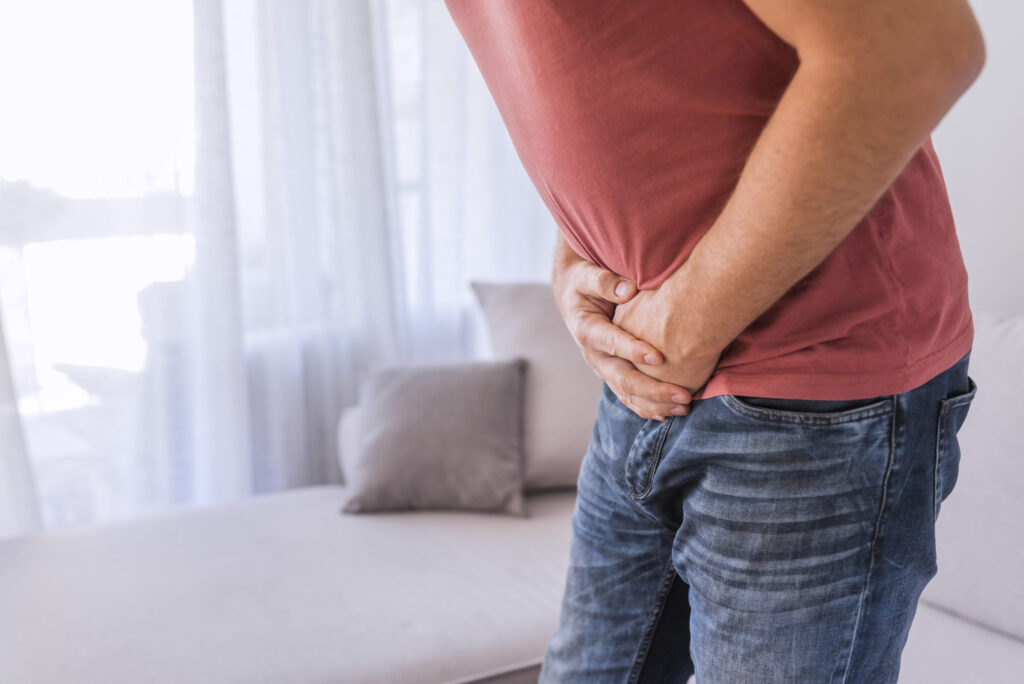Can ejaculating too soon after a vasectomy damage it? The short answer is yes, it can. Engaging in sexual activity before the recommended recovery period has elapsed can lead to complications that may affect the success of the vasectomy and the overall healing process.
A vasectomy is a common and highly effective form of male contraception, but like any medical procedure, it requires careful post-operative care to ensure a successful recovery.
One crucial aspect of this care involves understanding the timeline for resuming sexual activity, particularly ejaculation.
Recommended: Top 4 Signs That a Man Has Not Been Sexually Active
Let’s look at how ejaculating too soon after a vasectomy causes issues…
The Vasectomy Procedure
To fully grasp why premature ejaculation post-vasectomy is problematic, it’s essential to understand the procedure itself. A vasectomy involves severing and sealing the vas deferens, the tubes that carry sperm from the testicles to the urethra.
Recommended: Will I Last Longer After a Vasectomy?
This procedure is designed to prevent sperm from mixing with the ejaculate, thus rendering a man sterile.

Potential Risks of Ejaculating Too Soon After a Vasectomy
Ejaculating too soon after a vasectomy doesn’t directly damage the procedure itself, but it can cause complications that may affect the healing process. These complications include:
- Reopening of the Incision: Engaging in sexual activity too soon can cause the surgical site to reopen, leading to bleeding and infection. The pressure and physical exertion involved in ejaculation can strain the healing tissues, delaying recovery.
- Pain and Discomfort: Ejaculating too soon can lead to increased pain and discomfort. The vas deferens and surrounding tissues are still sensitive post-surgery, and premature ejaculation can exacerbate this sensitivity.
- Hematoma Formation: A hematoma is a collection of blood outside of blood vessels and can form if the healing tissue is disturbed. This can cause swelling, bruising, and pain, and may require additional medical intervention.
- Infection Risk: Any surgical procedure carries a risk of infection, and a vasectomy is no exception. Early ejaculation can introduce bacteria into the healing incision, increasing the likelihood of infection.
- Failure of the Vasectomy: One of the most significant risks is the potential for the vasectomy to fail. Early ejaculation can disrupt the sealing process of the vas deferens, leading to a reconnection. This can result in the presence of sperm in the ejaculate and the possibility of unintended pregnancy.
Recommended: Do Men Still Feel Pleasure After a Vasectomy?
When is it Safe to Ejaculate After a Vasectomy?
Doctors typically advise waiting at least one week before resuming light activities and two weeks before engaging in sexual activity, including ejaculation. This period allows for initial healing and reduces the risk of complications.
However, every individual heals differently, so it’s crucial to follow the specific recommendations provided by your healthcare provider.

Signs You May Have Resumed Activity Too Soon
- Increased Pain: If you experience a sudden increase in pain or discomfort after ejaculating, it may indicate that you resumed activity too soon.
- Swelling and Bruising: Noticeable swelling or bruising around the surgical site can be a sign of complications resulting from premature ejaculation.
- Bleeding or Discharge: Any bleeding or unusual discharge from the incision site warrants immediate medical attention.
- Fever or Infection Symptoms: A fever, along with redness, warmth, or pus around the incision, suggests an infection that needs prompt treatment.
Recommended: How Long After Vasectomy Can I Drink Alcohol?
Steps to Ensure a Smooth Recovery
- Follow Doctor’s Orders: Adhere strictly to the recovery guidelines provided by your healthcare provider. These instructions are designed to minimize risks and ensure successful healing.
- Rest and Take It Easy: Give your body ample time to heal by avoiding strenuous activities, including sexual intercourse, until you receive the green light from your doctor.
- Monitor for Complications: Keep an eye out for any signs of complications and contact your healthcare provider if you notice anything unusual.
- Use Supportive Underwear: Wearing supportive underwear can help reduce discomfort and swelling during the recovery period.
- Stay Hydrated and Eat Well: Proper nutrition and hydration can support the healing process and overall well-being.

When to Consult Your Doctor
If you experience any of the following symptoms after a vasectomy, contact your healthcare provider immediately:
- Severe or increasing pain
- Significant swelling or bruising
- Bleeding that doesn’t stop with gentle pressure
- Fever or signs of infection
- Difficulty urinating
Follow-up appointments are crucial for ensuring the success of your vasectomy. These appointments allow your doctor to check the healing progress and ensure that the vas deferens remain properly sealed.
Recommended: Can Sex Make You Constipated?
Typically, a semen analysis is performed a few months after the procedure to confirm the absence of sperm in the ejaculate.
Attending all follow-up appointments and adhering to your doctor’s recommendations can significantly reduce the risk of complications.
FAQs
Will I still ejaculate normally after a vasectomy?
Yes, you will still ejaculate normally. The semen will not contain sperm, but the volume and appearance of the ejaculate will remain the same.
Can I reverse a vasectomy if I change my mind?
While vasectomy reversal is possible, it is a more complex and less successful procedure than the original vasectomy. Consider the decision carefully and discuss it with your partner and healthcare provider.
Is there a risk of pregnancy after a vasectomy?
The risk of pregnancy after a vasectomy is very low, but not zero. It’s essential to use alternative contraception until semen analysis confirms the absence of sperm.
How do I know if I’m healing properly?
Normal healing includes mild discomfort, bruising, and swelling, which should gradually improve. If you experience severe pain, significant swelling, redness, or pus, contact your doctor.
Can I engage in non-penetrative sexual activities sooner?
While non-penetrative sexual activities may seem less risky, it’s best to follow your doctor’s guidelines to avoid any strain on the surgical site.
Conclusion
Ejaculating too soon after a vasectomy can indeed cause damage and lead to complications. By understanding the importance of the recommended recovery period and following your healthcare provider’s guidelines, you can ensure a smooth and successful healing process.
Patience and adherence to post-operative care instructions are key to achieving the desired outcome of the procedure and maintaining overall health.
